When designing a Mitsubishi heat pump heating system, several important factors must be considered to ensure optimal performance and efficiency:
- Size of the space to be heated: The size of the space and the local climate determine the required heating capacity of the heat pump.
- Insulation and airtightness of the building: Good insulation and airtightness reduce the heating load and improve the efficiency of the heat pump.
- Climate: The design should take into account the local climate, including the lowest expected temperature and the heating requirements of the space.
- Heating system components: The design should include appropriate components, such as air ducts, air handlers, and thermostats, to ensure the heat pump system is properly integrated into the building.
- Location of the outdoor unit: The outdoor unit should be located in a place that is protected from the elements, such as wind and snow, to ensure optimal performance.
- Maintenance requirements: The design should consider the maintenance requirements of the heat pump and include provisions for cleaning and servicing the system.
It is best to talk to a heating and cooling expert who is familiar with Mitsubishi heat pumps to make sure that the system is built and installed correctly for your needs.
Mitsubishi Cold-Climate Heat Pump Technology
Mitsubishi’s “Cold-Climate” heat pump technology refers to their line of heat pumps that are designed to operate effectively in colder climates, where temperatures can drop below the rated range of standard heat pumps. These heat pumps are equipped with features such as a built-in auxiliary heating system or a defrost function, which allow them to maintain performance in colder conditions. Mitsubishi’s cold-climate heat pumps are a cost-effective solution for heating homes and buildings in regions with cold weather, providing energy-efficient heating and hot water.
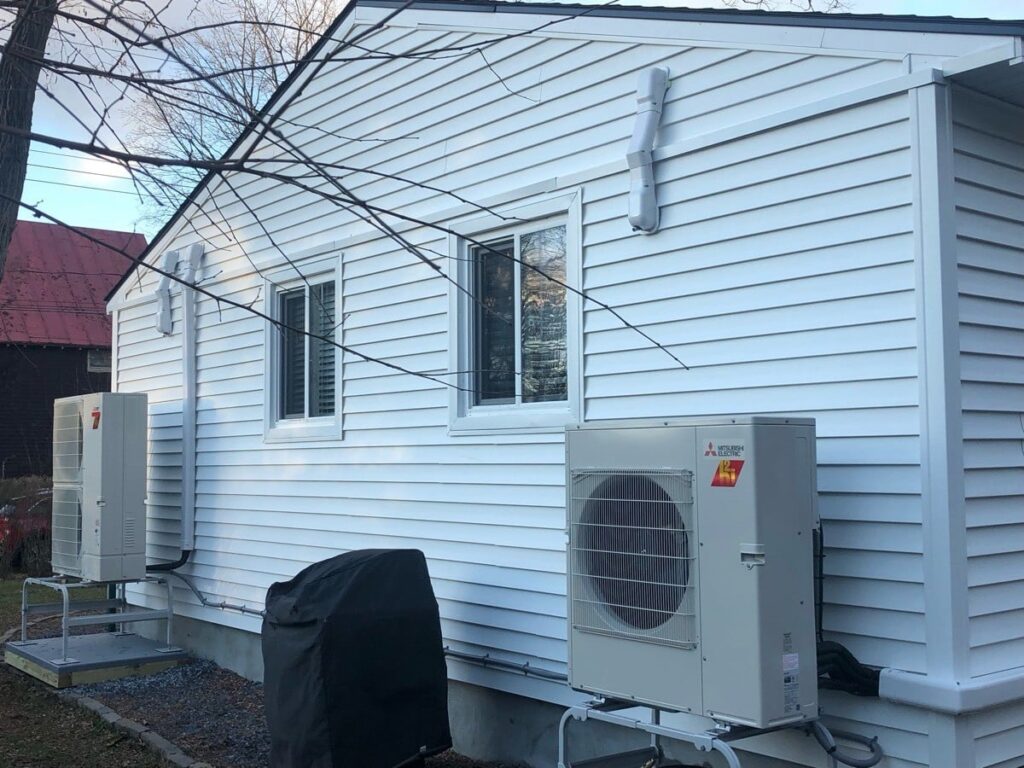
Advances in Mitsubishi Heat Pump Technology
Mitsubishi has made various advancements in heat pump technology in recent years, aimed at improving their performance, efficiency, and versatility. Some of these advancements include:
- Inverter Technology: Mitsubishi has developed inverter technology for their heat pumps, which allows them to operate more efficiently and effectively by adjusting their heating and cooling output according to the needs of the space.
- Zone Control: Mitsubishi heat pumps now offer zone control capabilities, which allow different areas of a building to be heated or cooled separately, providing improved comfort and energy efficiency.
- Improved Defrost Function: Mitsubishi has improved the defrost function in their heat pumps, which helps them maintain performance in cold weather conditions.
- Enhanced Airflow: Mitsubishi has made improvements to the airflow design of their heat pumps, which increases the efficiency of the heating and cooling process.
- Smart Home Integration: Mitsubishi heat pumps can now be integrated with smart home systems, allowing users to control their heating and cooling from their smartphones or other connected devices.
These advancements have made Mitsubishi heat pumps more effective, efficient, and convenient to use, making them an increasingly popular choice for heating and cooling homes and buildings.
How Important is Having the Correct Equipment and design for Mitsubishi Heat Pumps?
Having the correct equipment and design for a Mitsubishi heat pump system is very important for ensuring its optimal performance, efficiency, and longevity. Here are some reasons why:
- Proper Sizing: A heat pump that is too small for a space will have to work harder to maintain a comfortable temperature, which will result in increased energy consumption and reduced efficiency. On the other hand, a heat pump that is too large will cycle on and off frequently, which will also result in reduced efficiency and increased wear and tear on the equipment.
- Correct Installation: Proper installation of the heat pump and related components, such as ductwork and refrigerant lines, is critical to ensuring that the system operates correctly and efficiently. Improper installation can cause a variety of problems, such as reduced efficiency, increased energy consumption, and equipment failure.
- Proper Maintenance: Regular maintenance of the heat pump and its components is important for ensuring that it operates at peak performance and efficiency. Neglecting maintenance can result in increased energy consumption, reduced efficiency, and reduced lifespan of the equipment.
- Integration with other systems: The heat pump must be integrated with other heating and cooling components, such as thermostats and ductwork, to ensure that it operates as a seamless and efficient system.
In conclusion, having the correct equipment and design for a Mitsubishi heat pump is essential for ensuring that it operates efficiently, effectively, and reliably, providing optimal comfort and energy savings.
Can I Install My Own Mitsubishi Heat Pump System?
Installing a Mitsubishi heat pump system is a complex process that requires technical knowledge and expertise. While some homeowners may have the skills and experience to perform the installation themselves, it is generally recommended to hire a licensed heating and cooling professional to perform the installation. This is because:
- Safety: Incorrect installation of a heat pump system can be dangerous and can pose a risk of fire, electrical shock, or carbon monoxide poisoning. A licensed professional will have the knowledge and experience to install the system safely.
- Compliance with regulations: Heat pump installations must comply with local building codes and regulations, as well as manufacturer specifications. A licensed professional will be aware of these regulations and will ensure that the installation complies with them.
- Proper sizing and design: Correctly sizing a heat pump system and designing the related components, such as ductwork and refrigerant lines, is critical to ensuring that the system operates efficiently and effectively. A licensed professional will have the knowledge and experience to perform this step correctly.
- Warranty: Installing a heat pump system yourself can void the manufacturer’s warranty. A licensed professional will install the system in accordance with manufacturer specifications, preserving the warranty.
In conclusion, while it is possible for homeowners to install their own heat pump systems, it is generally recommended to hire a licensed professional to ensure that the installation is performed safely, efficiently, and in accordance with manufacturer specifications and local regulations.
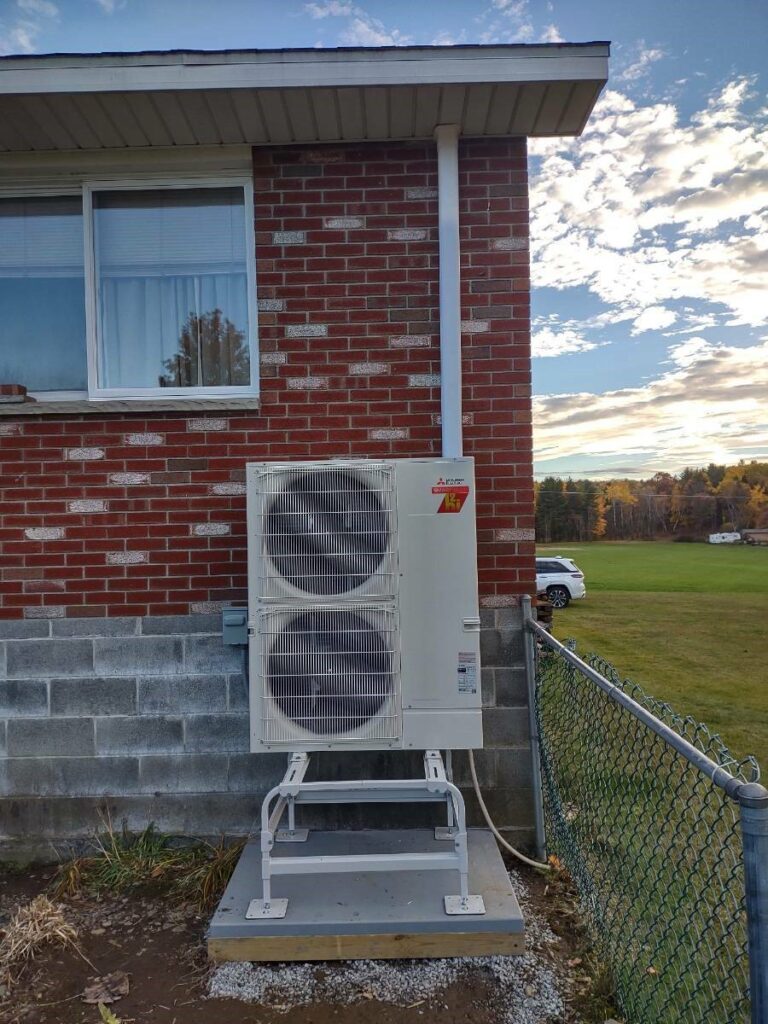
How Much Money Can I Save in Extreme Cold Weather Climate By Using a Mitsubishi Heat Pump System?
The amount of money you can save by using a Mitsubishi heat pump system in an extreme cold weather climate will depend on various factors, including:
- Size of the space: The size of the space that you are heating will affect the amount of energy that the heat pump will consume, and therefore the amount of money that you will save.
- Efficiency of the system: The efficiency of the heat pump system, including the size and efficiency of the equipment, the quality of the installation, and the efficiency of the related components, such as ductwork, will affect the amount of money that you can save.
- Cost of energy: The cost of energy in your area will affect the amount of money that you can save. In areas with high energy costs, you can potentially save more money with a heat pump system.
- Usage patterns: The amount of time that you use the heat pump system, and the temperature that you maintain in your space, will affect the amount of money that you can save.
It is difficult to estimate the exact amount of money that you can save with a Mitsubishi heat pump system in an extreme cold weather climate without considering these factors. However, as a general rule, heat pump systems are known to be energy-efficient and can potentially save you money on your heating costs when compared to other heating systems. To get a more accurate estimate of the amount of money that you can save, it is recommended to consult a licensed heating and cooling professional who can assess your specific needs and requirements.
Do Mitsubishi Heat Pumps Provide Heating and Air Conditioning?
Yes, Mitsubishi heat pumps can provide both heating and air conditioning. They are designed as a dual system that can both cool and heat the air in a building, making them a popular choice for all-in-one climate control solutions.
There are several advantages to using a Mitsubishi heat pump for heating and air conditioning:
- Energy efficiency: Heat pumps are known for their high energy efficiency, which can result in lower energy bills.
- Versatility: Mitsubishi heat pumps can be used to provide both heating and cooling, making them a convenient all-in-one solution for climate control.
- Cost-effectiveness: Installing a heat pump can often be more cost-effective than separate heating and cooling systems.
- Eco-friendly: Heat pumps use a renewable energy source (the air or ground outside) to heat and cool, making them a more environmentally friendly option compared to fossil fuel-powered systems.
- Quiet operation: Mitsubishi heat pumps are designed to operate quietly, making them a good choice for areas where noise levels need to be kept to a minimum.
- Reliability: Mitsubishi is a well-respected brand with a reputation for producing high-quality and reliable heat pumps.
How Important is Regular Maintenance for Mitsubishi Heat Pumps?
Regular maintenance is important for Mitsubishi heat pumps to ensure they continue to operate effectively and efficiently. Some of the benefits of regular maintenance include:
- Improved efficiency: Regular maintenance can help identify and address issues that may impact the efficiency of the heat pump, such as dirty filters or low refrigerant levels.
- Extended lifespan: Regular maintenance can help extend the lifespan of the heat pump by addressing issues before they become more serious and costly to repair.
- Improved comfort: Regular maintenance can help ensure that the heat pump is providing optimal heating and cooling performance, which can improve overall comfort levels in the home.
- Enhanced safety: Regular maintenance can help identify potential safety issues, such as frayed wires or leaky refrigerant lines, and address them before they become a hazard.
- Warranty protection: Regular maintenance may be required to maintain the warranty on the heat pump, so it’s important to follow the manufacturer’s recommended maintenance schedule.
For these reasons, it’s recommended to schedule regular maintenance for your Mitsubishi heat pump at least once a year, or as recommended by the manufacturer. A professional HVAC technician can perform a thorough inspection and maintenance on the heat pump to ensure it is in good working order.
How Many People Use Mitsubishi Heat Pumps in Cold Climates?
It is difficult to estimate the exact number of people who use Mitsubishi heat pumps in cold climates, as it depends on various factors such as local weather conditions, building construction, and energy policies. However, heat pumps are used by many people in cold climates as a means of heating and cooling their homes, due to their energy efficiency, versatility, and eco-friendliness.
Heat pumps can be a good choice for cold climates, especially when paired with a supplementary heating system for extreme cold temperatures. However, it’s important to choose a heat pump that is specifically designed for cold climates and sized correctly for the building. A professional HVAC technician can provide guidance on the best heat pump and supplementary heating system for a specific climate and building.
What Do I Do If My Heat Pumps Stops Working in Extreme Cold Weather?
If your heat pump stops working in extreme cold weather, here are some steps you can take:
- Check the thermostat: Ensure the thermostat is set to the correct temperature and that the batteries are working. If the thermostat is not functioning properly, the heat pump will not turn on.
- Check the electrical panel: Make sure the circuit breaker hasn’t tripped. If it has, switch it back on and see if the heat pump starts working.
- Check the air filter: A dirty air filter can cause the heat pump to shut down. Clean or replace the air filter if it’s dirty.
- Check the outdoor unit: Ensure the outdoor unit is free of snow and ice. If it’s covered, clear it off to allow proper air flow.
- Call a professional: If these basic troubleshooting steps do not resolve the issue, it’s recommended to call a professional HVAC technician for assistance. They will be able to diagnose and repair the issue more effectively.
It’s important to address any issues with the heat pump as soon as possible, especially in extreme cold weather, to ensure the safety and comfort of the building and its occupants.
How Long Will a Mitsubishi Cold-Climate Heat Pump Turn Off in Extreme Cold?
The length of time a Mitsubishi cold-climate heat pump will turn off in extreme cold weather depends on several factors, including the model and specifications of the heat pump, the temperature outside, and the efficiency of the supplementary heating system (if one is used).
In general, a well-designed and maintained Mitsubishi cold-climate heat pump should be able to provide heating even in extreme cold temperatures, as long as it is designed and sized correctly for the climate and building. If the outdoor temperature drops below the heat pump’s minimum operating temperature, the heat pump may turn off and the supplementary heating system will take over.
The length of time the heat pump will be off will depend on the design and efficiency of the supplementary heating system, as well as the outdoor temperature. A professional HVAC technician can provide more specific information about a specific heat pump and its performance in extreme cold weather.
Will an Unmaintained Mitsubishi Heat Pump Work?
An unmaintained Mitsubishi heat pump may still work, but it will not function at optimal efficiency and may experience issues that could impact its performance, longevity, and safety.
Regular maintenance is important for all heat pumps, including Mitsubishi heat pumps, to ensure they continue to operate effectively and efficiently. Some of the benefits of regular maintenance include:
- Improved efficiency: Regular maintenance can help identify and address issues that may impact the efficiency of the heat pump, such as dirty filters or low refrigerant levels.
- Extended lifespan: Regular maintenance can help extend the lifespan of the heat pump by addressing issues before they become more serious and costly to repair.
- Improved comfort: Regular maintenance can help ensure that the heat pump is providing optimal heating and cooling performance, which can improve overall comfort levels in the home.
- Enhanced safety: Regular maintenance can help identify potential safety issues, such as frayed wires or leaky refrigerant lines, and address them before they become a hazard.
For these reasons, it’s recommended to schedule regular maintenance for your Mitsubishi heat pump at least once a year, or as recommended by the manufacturer. A professional HVAC technician can perform a thorough inspection and maintenance on the heat pump to ensure it is in good working order.
Can Solar Panels Provide Needed Electricity to Operate Mitsubishi Heat Pumps?
Yes, solar panels can provide the electricity needed to operate Mitsubishi heat pumps, as long as the solar panel system is properly designed and sized for the needs of the heat pump.
Solar panels convert sunlight into electricity, which can be used to power the heat pump and other electrical appliances in the home. By using solar panels, homeowners can reduce their reliance on traditional electricity sources, and potentially lower their energy bills.
However, it’s important to note that the size of the solar panel system needed to power a heat pump will depend on several factors, such as the size of the heat pump, the amount of electricity it uses, and the climate where it is located. A professional HVAC technician or solar installer can provide a more specific recommendation for the size and type of solar panel system needed to power a specific heat pump.
If I Have Solar Power and Heat Pumps Do I Need Anything Else for Electricity and Heat?
If you have both solar panels and a heat pump, you may not need any other sources of electricity and heat, but it depends on several factors:
- Solar Panel System Size: The size of your solar panel system will determine the amount of electricity it can generate. If your heat pump uses more electricity than your solar panels can generate, you may still need to rely on the grid for additional power.
- Climate: The climate where you live will impact the efficiency of your heat pump, and the amount of electricity your solar panels can generate. In areas with long, cloudy or overcast days, you may need to rely on other sources of heat or power.
- Energy usage patterns: Your energy usage patterns will also impact your reliance on other sources of power. If you use a lot of electricity during times when the sun is not shining, you may need to supplement your solar panels with power from the grid.
- Backup systems: Some people choose to install backup systems, such as batteries or a generator, to provide additional electricity when their solar panels are not generating enough power.
It’s important to conduct a comprehensive energy analysis to determine your specific energy needs and determine if you need any additional sources of heat or power. This analysis can be performed by a professional HVAC technician or energy auditor.

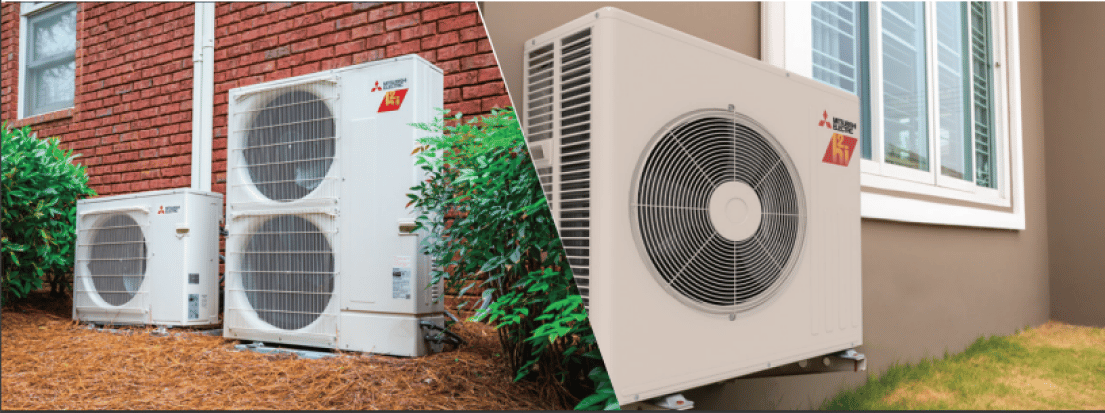
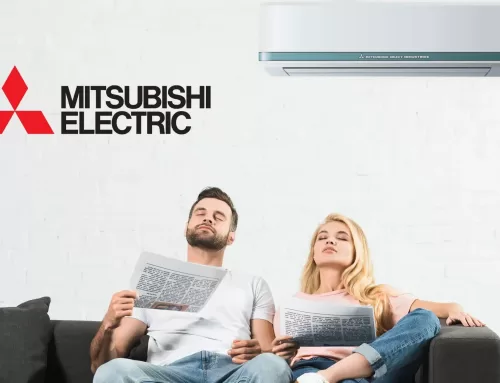
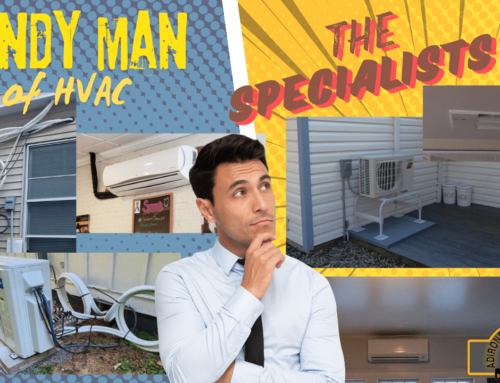
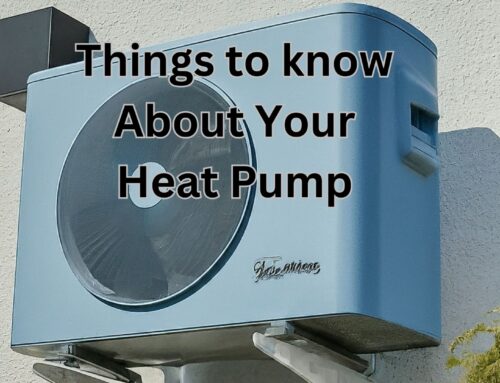
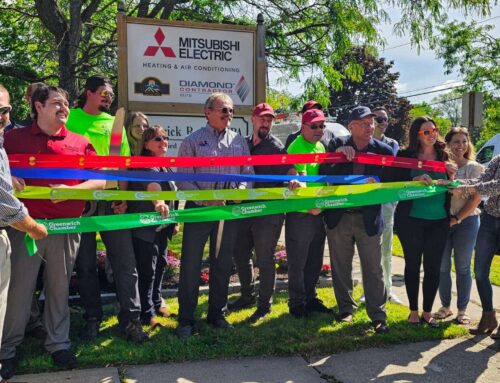
Leave A Comment